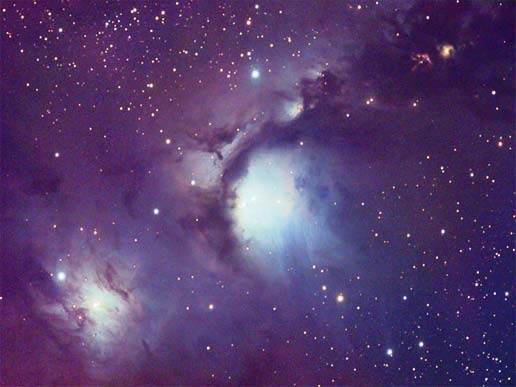


 http://www.physics.brandeis.edu/USEM7b_2002/Watch_open.jpg
http://www.physics.brandeis.edu/USEM7b_2002/Watch_open.jpg
". . . when we come to inspect the watch, we perceive. . . that its several parts are framed and put together for a purpose, e.g. that they are so formed and adjusted as to produce motion, and that motion so regulated as to point out the hour of the day; that if the different parts had been differently shaped from what they are, or placed after any other manner or in any other order than that in which they are placed, either no motion at all would have been carried on in the machine, or none which would have answered the use that is now served by it. . . . the inference we think is inevitable, that the watch must have had a maker -- that there must have existed, at some time and at some place or other, an artificer or artificers who formed it for the purpose which we find it actually to answer, who comprehended its construction and designed its use." - William Paley, Natural Theology, 1802
"Where were you when I laid the foundations of the earth? Tell me, if you understand." - Job 38:4, Holy Bible, NIV
A Divine Creator?
So if we find random processes improbable and a multiverse theory or otherwise unbacked, where did we come from? A notable movement in today's scientific community is the Intelligent Design movement, which advocates the theory that the incredible complexity of life, the planets, and the cosmos, because of their fine-tuning for the existence of life on earth, could only be the work of a divine Designer. The Intelligent Design movement has been around for centuries, but lost some popularity after Darwinian evolution was largely accepted. Probably its main pre-Darwinian advocate was William Paley(1743-1805), an English theologian who wrote many works on the topic of Intelligent Design, and was very influential in the theological, scientific, and philosophical communities. Today, there are a growing number of advocates of Intelligent Design in the scientific community, one of the main being William A. Dembski, a philosopher/mathematician/theologian, who has written several books on Intelligent Design. Other main scholars include Phillip E. Johnson, a Professor of Law at the University of California Berkeley, John Polkinghorne, a Cambridge particle physicist/theologian, biochemist Michael Denton, and many others, including chemists, biologists, physicists, astronomers, philosophers, mathematicians, etc. The main objective of the Intelligent Design movement is to overturn Darwinism and point out flaws in naturalist assumptions and influences in the scientific community. It is their case that supernatural intervention is needed to create and shape our world. It is a science-based movement only, different from the Creationist movement in that it does not present a Bible-based creation model, and does not propose a religious belief, although the majority of its supporters are Christian theists of some kind. The main basis for their arguments consists of discussions and research on (1) the simple mathematical form that nature takes; (2) the coincidence that the universal constants are exactly what they need to be to support life of any type on this planet; and (3) the coincidence that the initial conditions in many different situations are also critical and happen to have been exactly what they needed to be for the universe and life to come into being.
So do we owe our existence to a Designer, or are we just here by random
chance? I guess that is for each of us to decide, and is perhaps a matter
of ideals and faith more than pure science. Sometimes it seems, however,
that science is pointing us towards God, which is unsettling to some naturalist
scientists. Robert Jastrow, in the conclusion of his book God and the
Astronomers, puts the scientists plight like this: "For the scientist
who has lived by his faith in the power of reason, the story ends like
a bad dream. He has scaled the mountains of ignorance; he is about to
conquer the highest peak; as he pulls himself over the final rock, he
is greeted by a band of theologians who have been sitting there for centuries."